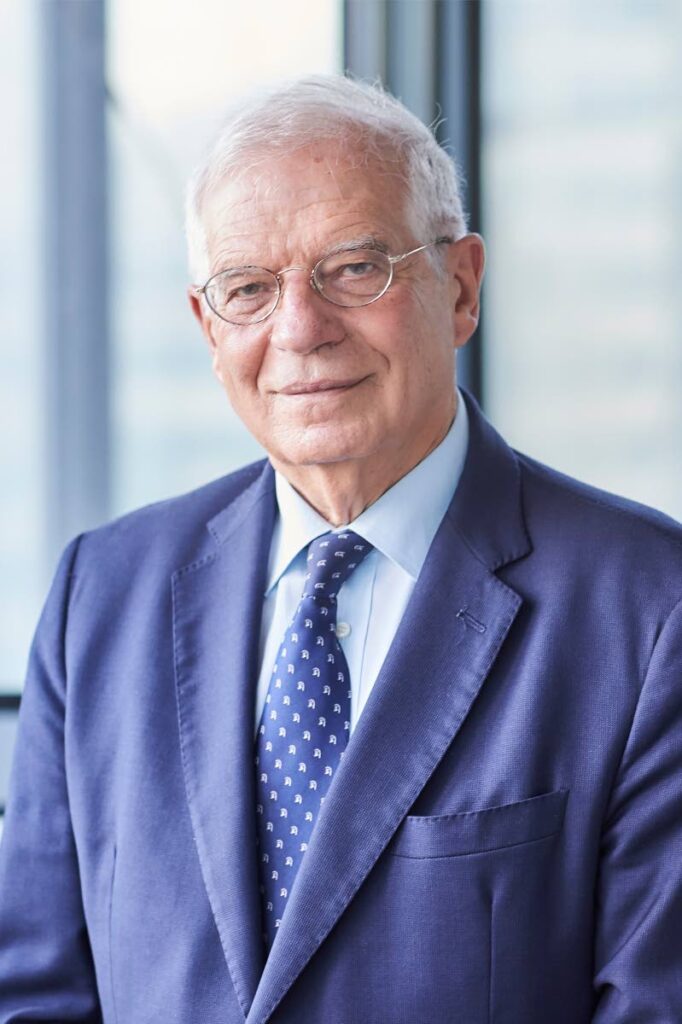EU-CELAC: Let us avoid another lost decade

JOSEP BORRELL FONTELLES
AS HIGH Representative of the European Union for foreign and security policy, it has been my priority to give renewed political form to the feeling of community that unites Europe and Latin America and the Caribbean (LAC). A feeling forged by the movement of millions of people from one side of the Atlantic to the other, united by a common history, languages and cultures.
And for this, the recent III EU-CELAC Summit that brought together in Brussels the leaders of 60 countries, almost a third of the members of the United Nations, 14 per cent of the population and 21 per cent of the world GDP, has relaunched our strategic partnership.
This essential summit has been a great diplomatic step promoted together with the Spanish presidency of the Council of the EU. We have overcome a long period of disagreement since the previous summit, held eight years ago.
The world has changed dramatically since then, with the emergence of China, the devastating effects of the pandemic, and Russia's war of aggression against Ukraine. We now have a lot of work to do to push forward a mutually beneficial shared agenda for both regions.
Neither in the EU nor in LAC do we want to return to the cold war or to a policy of blocs. On the contrary, we want to promote a pluralistic vision of the international community based on norms, co-operation and the peaceful resolution of conflicts.
This vision is in jeopardy, and in a world of giants, each of us cannot defend it alone. Let us not forget that beyond trade or diplomacy, the strongest bridges that we can build between the EU and LAC are those that reinforce political rights and freedoms.
Despite the pandemic, I have travelled to LAC six times and I have clearly perceived the resentment for the negligence attributed to Europe in its approach to LAC. And this despite the fact that European companies continue to be the largest investor in the region, with a level of direct investment that exceeds that invested by the EU in China, Russia, Japan and India combined.
China, however, has become, thanks to its scale, the first trading partner of almost all LAC countries. In the meantime, our draft association and commercial agreements have remained stalled or awaiting urgent modernisation. Added to this impasse is the feeling that, although we share values, our priorities do not always coincide.
For this reason, the summit has decided to modernise our relationship to adapt it to the great global challenges with regular summits every two years, a permanent co-ordination body and a bi-regional roadmap, with concrete actions until the meeting in 2025 in Colombia.
At this summit we have presented, together with the member states of the EU, an investment agenda that amounts to 45 billion euros until 2027 in renewable energies, digital transformation or pharmaceutical innovation and the strengthening of health systems.
We have also signed a digital alliance with 20 countries in the region to advocate together for a human-centred digital transformation, especially important for a region with high levels of inequality and stagnant productivity.
The objective of this investment effort is to modernise and strengthen ties, not dependencies. LAC wants to take advantage of the new transitions to industrialise key sectors and add value to its enormous potential in biodiversity, renewable energy, agricultural production and raw materials. It wants to grow, but with greater equality and sustainability.
Our relationship must be fundamentally political and cannot be summed up in a list of investments, but Europe can provide technological capacity and it also needs alliances with reliable partners to diversify its supply chains.
For Europeans it is urgent to understand that we must commit ourselves not only to our problems, but to the problems of our partners. LAC asks us to find solutions to key issues that fall under the rubric of global justice: debt relief, climate financing, green bonds and attraction of private investment, reorganisation of value chains (avoiding extractivist policies), taxation on a global scale, joint fight against drugs and organised crime, among other issues.
This also implies being willing to reform the multilateral system and international financial institutions to make them more just and representative. In short, the region asks for its influence at the main decision-making tables in the world.
The summit has not represented progress in the negotiations with Mercosur, but neither was it expected to be. Negotiations concluded in 2019 with an "agreement in principle" are continuing in order to achieve a final agreement.
Our relationship should contribute to a new decarbonised social prosperity, in the apt phrase of the president of Colombia, making the defence of the planet compatible with material progress and social equity. We must also overcome our geopolitical differences.
The vast majority of LAC has condemned the Russian invasion of Ukraine in the United Nations. But the relative importance of this aggressive war is not perceived in the same way.
The discussion of the final communiqué well reflected this tension between the close European unity in the face of an existential question and the different nuances within LAC. The issue ended with the exclusion of Nicaragua, but not Cuba or Venezuela, from the final wording that makes clear reference to a war "against" Ukraine and not "in" Ukraine.
My conclusion from the summit is that the defence of the principles of the United Nations Charter and of a rules-based international system in a time of authoritarian tendencies and populist dynamics requires more than ever a strong partnership between the EU and LAC. We cannot afford another lost decade.
Josep Borrell Fontelles is the High Representative of the European Union for Foreign and Security Policy and Vice-President of the European Commission

Comments
"EU-CELAC: Let us avoid another lost decade"